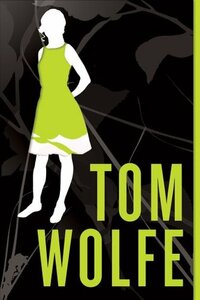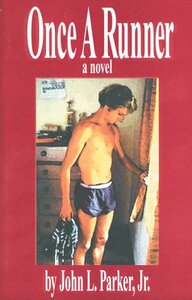Take a photo of a barcode or cover
writesdave's Reviews (364)
Excellent read of an insider's look, which sometimes is not always that good. The character of the jock with brains has been done before but never this well. You can't be an idealist about sports after reading this. Hell, Reid's just a damned good writer and I'm interested to read his other stuff.
It didn't suck as bad as some have said but, damn, that was weird. The book follows a disillusioned hippie as he drops a lot of acid and becomes a ram to discover himself. During this constant, LSD-induced fog of "discovery" he writes a manuscript and rejects everything and everyone close to him, including his long-suffering wife, Lindy — and, ultimately, the manuscript itself. He goes to one of the roughest patches of Alaskan wilderness (the Wrangell Mountains) to live among the sheep with which he communes and the wolves that hunt them.
I'm always interested in reading tales of self-discovery — Travels With Charley, Blue Highways, Into the Wild, Catcher in the Rye come immediately to mind. Nonetheless, this was over the top and off the charts strange, though Rich Shapero did his homework by doing the necessary travel. His descriptions are very vivid but at times overwrought, like he's trying to impress us with how colorful he is — or, more likely, with how many drugs he did to induce these images.
I'm always interested in reading tales of self-discovery — Travels With Charley, Blue Highways, Into the Wild, Catcher in the Rye come immediately to mind. Nonetheless, this was over the top and off the charts strange, though Rich Shapero did his homework by doing the necessary travel. His descriptions are very vivid but at times overwrought, like he's trying to impress us with how colorful he is — or, more likely, with how many drugs he did to induce these images.
Wolfe could have been describing my freshman year because I was a somewhat idealistic Midwesterner headed to an Eastern, private school. Granted I'm not female but a lot of what I saw rang true. And yes, the people I encountered in college by and large were as one-dimensional as the characters Wolfe portrayed in "Charlotte Simmons."
Truth be told, I read this in less than a week and couldn't help but be bummed out by my college experience but it was nice to sort of re-live it through Wolfe. I give him lots of credit for doing the "research" necessary for the book but I did feel like something of a voyeur. It was an enjoyable read but not earth-shattering, and I look forward to reading other Wolfe works.
Truth be told, I read this in less than a week and couldn't help but be bummed out by my college experience but it was nice to sort of re-live it through Wolfe. I give him lots of credit for doing the "research" necessary for the book but I did feel like something of a voyeur. It was an enjoyable read but not earth-shattering, and I look forward to reading other Wolfe works.
If Chuck Klosterman really wrapped his head around sports, this is what he'd write. It takes to task everyone involved in sports for their preceived overimportance in our world, but Leitch spends a lot of time ranting on the owners, players and media for taking sports away from the fan.
Leitch is the proprieter of deadspin.com, sort of "The Onion" for sports fans, and his wit certainly gets his point across. At his heart he is a sports fan, and the book does not lack his loyalties to the hapless Arizona Cardinals and the not-so-hapless St. Louis Cardinals. He's just frustrated with the direction in which sports are going and he offers some theories for how it happened and how fans can take them back.
The main beef I have is that he completely ignored the NHL. While I acknowledge the league is run by buffoons who sold the TV rights to an obscure cable network for little more than a song, it's still major enough that it merits mention in any discussion about disgruntled fans, since hockey's costs have increased exponentially in the past decade or so. Plus, there are more sports than just the major team sports and fans of those are just as frustrated (and sometimes overly passionate) as fans of the major team sports, so he could have been a bit more all-encompassing in his survey.
Still, his point is well-taken and this book remains highly recommended.
Leitch is the proprieter of deadspin.com, sort of "The Onion" for sports fans, and his wit certainly gets his point across. At his heart he is a sports fan, and the book does not lack his loyalties to the hapless Arizona Cardinals and the not-so-hapless St. Louis Cardinals. He's just frustrated with the direction in which sports are going and he offers some theories for how it happened and how fans can take them back.
The main beef I have is that he completely ignored the NHL. While I acknowledge the league is run by buffoons who sold the TV rights to an obscure cable network for little more than a song, it's still major enough that it merits mention in any discussion about disgruntled fans, since hockey's costs have increased exponentially in the past decade or so. Plus, there are more sports than just the major team sports and fans of those are just as frustrated (and sometimes overly passionate) as fans of the major team sports, so he could have been a bit more all-encompassing in his survey.
Still, his point is well-taken and this book remains highly recommended.
"Memoir of a mountain climber" seems overly simplistic but Viesturs is humble enough to be embarrassed by being called anything more than a mountain climber. It's a psychological study, too, offering insight into what prompts people (especially a guy who grew up in a shithole like Rockford, Ill.) to head for the mountains — and beyond.
Excruciatingly detailed, which is a blessing and a curse; for example, the discussion of probability of death up there flew past me like a Nolan Ryan fastball. On the other hand, I appreciated the detail that went into each climb, from the preparation and selection of gear to making it back to base camp ("Getting to the summit is optional. Getting down is mandatory," he says repeatedly).
Overall, this is a great read for anyone who's ever looked up at the snow-capped peaks and wondered, "What's it like..."
Excruciatingly detailed, which is a blessing and a curse; for example, the discussion of probability of death up there flew past me like a Nolan Ryan fastball. On the other hand, I appreciated the detail that went into each climb, from the preparation and selection of gear to making it back to base camp ("Getting to the summit is optional. Getting down is mandatory," he says repeatedly).
Overall, this is a great read for anyone who's ever looked up at the snow-capped peaks and wondered, "What's it like..."
Wow. Looks like someone might have written about my life, from the realization that I won't have it as good financially as my parents to spending some years in the desert (Northern Nevada for me, not Palm Springs) to taking on a McJob because there was no chance for advancement in my dying industry. It didn't feel dated at all to me, though the book's title hasn't been a part of pop culture in quite some time. The comparison to "Catcher in the Rye" is very apt. A modern classic.
Costas takes on the problem of how to bring fans back to America's game. He made some decent points, especially about playing some playoff games during the day to lure the next generation, but for the most part his words are dated. As it was written in 2000, nowhere does the word "steriods" appear, and in the years since he wrote that has been the thing most purists find most offensive about the game. Costas' heart is in the right place but at this point there's little the game can do to save itself.
Awesome. With all these reviews everything worthwhile has been said. Any high school or college runner can relate to just about everything in the book, and if I were a coach at that level, this and Prefontaine's biography would be mandatory reading. Sometimes the prose gets a bit thick, and overall Parker's style is lacking, but it's a hell of a story regardless.
A non-runner who truly wants to understand why we do what we do could gain a lot from this but that person must have an open mind. Otherwise, no runner's literary life is complete without reading this one.
A non-runner who truly wants to understand why we do what we do could gain a lot from this but that person must have an open mind. Otherwise, no runner's literary life is complete without reading this one.
I learned that I should have hustled my way from mid-sized rags out in the sticks to the big city based on my observational qualities and yen for a nomadic life. Then I read this. Charles Kuralt sets the gold standard for purposeful nomads, and this could be considered his "best-of." Instead of his best writing, though, he chronicles his best places at the best times of year. New Orleans before Mardi Gras, Key West before spring break, his native North Carolina in early spring, and so forth. This book deserves mention with (but does not exceed) "Blue Highways" and "Travels With Charley."
Frankly, learning about his secret family and the bigamy was like learning the truth about the tooth fairy, I hold the man in such high regard. Nothing, though, can take away from his talents and his powers of observation, sharp as ever in his favorite places.
Frankly, learning about his secret family and the bigamy was like learning the truth about the tooth fairy, I hold the man in such high regard. Nothing, though, can take away from his talents and his powers of observation, sharp as ever in his favorite places.
Odd that I would give my endorsement to a book I didn't finish. It was awful thick -- obviously I'm not an academic -- but terribly interesting. I already think too much about where I'm going and where I'd rather be other than where I am now, and Dr. Florida justifies my obsession with a mountain of stats.
Over the summer I wasn't really in a place where I could do a whole lot of this kind of reading so I have every intention of picking it up again.
If you don't think where you live matters, Florida will make you think about it.
Over the summer I wasn't really in a place where I could do a whole lot of this kind of reading so I have every intention of picking it up again.
If you don't think where you live matters, Florida will make you think about it.









